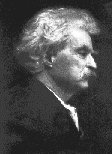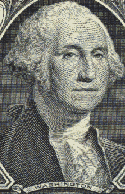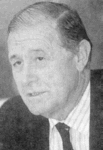|
See also:

 Stories,
Books,
Videos,
Addresses,
Links.
Stories,
Books,
Videos,
Addresses,
Links.

 Cannabis in Japan (main index)
Cannabis in Japan (main index)

 Marijuana,
Drug risks
Marijuana,
Drug risks
|
Drugs, prohibition and human nature
|
Here is a little selection of quotes by various well known
people. Some are about cannabis, some about prohibition,
some about human nature in general.

 Mark Twain,
Friedrich Nietzsche,
Albert Einstein,
Mark Twain,
Friedrich Nietzsche,
Albert Einstein,

 George Washington,
Richard Nixon,
George Washington,
Richard Nixon,

 Jimmy Carter,
Ronald Reagan,
Dan Quayle,
Jimmy Carter,
Ronald Reagan,
Dan Quayle,

 Emily Murphy,
Harry J. Anslinger,
Emily Murphy,
Harry J. Anslinger,

 Thomas Constantine (DEA),
Peter McWilliams,
Thomas Constantine (DEA),
Peter McWilliams,

 Judge Young,
Judge Gray,
Institute of Medicine,
Judge Young,
Judge Gray,
Institute of Medicine,

 Raymond Kendall (Interpol),
Milton Friedman,
William F. Buckley,
Raymond Kendall (Interpol),
Milton Friedman,
William F. Buckley,

 Paul McCartney,
Irvine Walsh (Trainspotting),
Mahatma Ghandi.
Paul McCartney,
Irvine Walsh (Trainspotting),
Mahatma Ghandi.

 More quotes...
More quotes...
"Everything in moderation, including moderation."

Mark Twain
American writer,
author of "The adventures of Tom Sawyer"
|

|
|
"Mistrust those in whom the urge to punish is strong."
Friedrich Nietzsche
German philosopher (1844-1900)
|
"Make the most of the Indian hemp seed,
and sow it everywhere!"
George Washington
Note to the gardener at Mount Vernon, 1794
"The Writings of George Washington"
Volume 33, page 270 (Library of Congress)
(George Washington, first president of the United States of America,
grew cannabis on Mount Vernon, his plantation, for about 30 years.
He may have used the Indian hemp to treat his chronic tooth aches.)
|

|
|
"Our country has deliberately undertaken a great social and economic experiment, noble in motive and far-reaching in purpose."
Herbert Hoover
US President
on the 18th Amendment enacting Alcohol Prohibtion, 1919
|
"The prestige of government has undoubtedly been lowered
considerably by the prohibition law. For nothing is more
destructive of respect for the government and the law of
the land than passing laws which cannot be enforced. It is
an open secret that the dangerous increase of crime in this
country is closely connected with this."
Albert Einstein
"My First Impression of the U.S.A.", 1921
|

|
|
"First they ignore you; then they mock you;
then they punish you; then you win."
Mahatma Ghandi
Indian independence leader
|
|
"Persons using this narcotic [marijuana] smoke the dried leaves of the plant, which has the effect of driving them completely insane. The addict loses all sense of moral responsibility. Addicts to this drug, while under its influence, are immune to pain, and could be injured without having any realization of their condition. While in this condition they become raving maniacs and are liable to kill or indulge in any form of violence to other persons, using the most savage methods of cruelty without, as said before, any sense of moral responsibility. . . . If this drug is indulged in to any great extent, it ends in the untimely death of its addict."
Emily Murphy
Edmonton Canada, 1923
campaigner for cannabis prohibition in Canada
|

|
|
"I wish I could show you what a small marihuana cigarette can do to
one of our degenerate Spanish-speaking residents. That's
why our problem is so great; the greatest percentage of our
population is composed of Spanish-speaking persons, most of
who are low mentally, because of social and racial conditions."
Floyd K. Baskette
Alamosa, Colorado
quoted by Harry J. Anslinger,
Commissioner of the Federal Bureau of Narcotics
during the hearings on the 1937 Marihuana Tax Act
|
|
Marijuana is taken by
".....musicians. And I'm not speaking
about good musicians, but the jazz type..."
Harry J. Anslinger
Federal Bureau of Narcotics
1948
|
|
"It is difficult to get a man to understand something when his salary
depends on his not understanding it."
Upton Sinclair
Author of
"The Jungle"
|
|
"Since you [US "drug tsar" McCaffrey] control a federal budget that
has just been increased from $17.8 billion last year to $19.2 billion
this year, is asking people like you if we should continue with our
nation's current drug policy like a person asking a barber if one
needs a haircut?"
Judge James P. Gray
Orange Country, California
Los Angeles Times
29 March 2000
|
"When we look down the road, I would say 10, 15, 20 years from now, in a
gradual fashion, smoking will probably be outlawed in the United States."
Tom Constantine
Administrator of the DEA
in an
interview with ABC TV network
|

|
"You're asking the government to control individual morality.
This is a government that can't buy a toilet seat for under $600."
|
"The question arises, therefore, why cannabis is so regularly banned in countries where alcohol is permitted. [...] It may be that we can ban cannabis simply because the people who use it, or would do so, carry little weight in social matters and are relatively easy to control, whereas the alcohol user often carries plenty of weight in social matters and is difficult to control, as the U.S. prohibition era showed. It has yet to be shown, however, that the one is more socially or personally disruptive than the other."
Ph.D. H.B.M Murphy, M.D.
Department of Psychiatry, McGill University, Montreal.
"The Cannabis Habit" (1963)
published in 'Bulletin on Narcotics' by UNDCP
|

|
|
"Our youth can not understand why society chooses to criminalize
a behavior with so little visible ill effect or adverse social
impact... These young people have jumped the fence and found
no cliff. And the disrespect for the possession laws fosters
a disrespect for laws and the system in general... On top of this
is the distinct impression among the youth that some police may
use the marihuana laws to arrest people they don't like for other
reasons, whether it be their politics, their hair style or their
ethnic background."
"Federal and state laws (should) be changed to no longer make it
a crime to possess marijuana for private use."
"State laws should make the public use of marijuana a criminal
offense punishable by a $100 fine. Under federal law, marijuana
smoked in public would merely be subject to seizure."
|

|
|
"Criminal penalties have clearly failed to prevent widespread
use of marijuana... Law and health are two entirely separate
issues."
|
|
"Congress should definitely consider decriminalizing possession
of marijuana... We should concentrate on prosecuting the rapists
and burglars who are a menace to society."
Dan Quayle
U.S. Representative and
Vice president under President Bush
March 1977
|
|
"Penalties against possession of a drug should not be more
damaging to an individual than the use of the drug itself;
and where they are, they should be changed. Nowhere is this
more clear than in the laws against possession of marihuana
in private for personal use... Therefore, I support legislation
amending Federal law to eliminate all Federal criminal penalties
for the possession of up to one ounce [28g] of marihuana."
|
|
"Government exists to protect
us from each other. Where government has gone beyond its limits is in
deciding to protect us from ourselves."
|

|
|
"The existing evidence on policies of partial prohibition [decriminalization]
indicates that partial prohibition has been as effective in controlling
consumption as complete prohibition and has entailed considerably smaller
social, legal, and economic costs. On balance, therefore, we believe that
a policy of partial prohibition is clearly preferable to a policy of
complete prohibition of supply and use.
We believe, further) that current policies directed at controlling the
supply of marijuana should be seriously reconsidered. The demonstrated
ineffectiveness of control of use through prohibition of supply and the
high costs of implementing such a policy make it very unlikely that any
kind of partial prohibition policy will be effective in reducing marijuana
use significantly below present levels. (...) Hence, a variety of
alternative policies should be considered."
|

|
"Western governments ... will lose the war against dealers
unless efforts are switched to prevention and therapy...
All penalties for drug users should be dropped ...
Making drug abuse a crime is useless and even dangerous ...
Every year we seize more and more drugs and arrest more and
more dealers but at the same time the quantity available in our
countries still increases... Police are losing the drug battle worldwide."
Raymond Kendall
secretary general of INTERPOL
January 1994
|

|
|
"The amount of money and of legal energy being given to prosecute
hundreds of thousands of Americans who are caught with a few
ounces of marijuana [1 ounce = 28g] in their jeans simply makes
no sense - the kindest way to put it. A sterner way to put it is
that it is an
outrage, an imposition on basic civil liberties and on the
reasonable expenditure of social energy."
William F. Buckley
"Legalization of Marijuana Long Overdue"
Albuquerque Journal
June 8, 1993
|

|
|
"So long as large sums of money are involved - and they are bound
to be if drugs are illegal - it is literally impossible to stop
the traffic, or even to make a serious reduction in its scope."
"Our emphasis here is based not only on the growing seriousness of
drug-related crimes, but also on the belief that relieving our
police and our courts from having to fight losing battles against
drugs will enable their energies and facilities to be devoted more
fully to combatting other forms of crime. We would thus strike a
double blow: reduce crime activity directly, and at the same time
increase the efficacy of law enforcement and crime prevention."
|

Milton Friedman, along with John Maynard Keynes, is considered one of the
most influential economists of the 20th century.
|

|
|
"In strict medical terms marijuana is far safer than many
foods we commonly consume. It is physically impossible
to eat enough marijuana to induce death. Marijuana, in
its natural form, is one of the safest therapeutically
active substances known to man."
Francis
L. Young

Administrative Law Judge of the
US drug police DEA,
September 6, 1988:
|

|
|
"There is no conclusive evidence that the drug effects of marijuana are causally linked to the subsequent abuse of other illicit drugs."
"Although few marijuana users develop dependence, some do. Risk factors for marijuana dependence are similar to those for other forms of substance abuse. In particular, antisocial personality and conduct disorders are closely associated with substance abuse. (...) A distinctive marijuana withdrawal syndrome has been identified, but it is mild and short-lived."
"Except for the harms associated with smoking, the adverse effects of marijuana use are within the range of effects tolerated for other medications."
"Research should continue into the physiological effects of synthetic and plant-derived cannabinoids and the natural function of cannabinoids found in the body. Because different cannabinoids appear to have different effects, cannabinoid research should include, but not be restricted to, effects attributable to THC alone."
"Scientific data indicate the potential therapeutic value of cannabinoid drugs for pain relief, control of nausea and vomiting, and appetite stimulation. This value would be enhanced by a rapid onset of drug effect."
"Until a non-smoked, rapid-onset cannabinoid drug delivery system becomes available, we acknowledge that there is no clear alternative for people suffering from chronic conditions that might be relieved by smoking marijuana, such as pain or AIDS wasting."
Report of the Institute of Medicine
for the Office of National Drug Control Policy
Marijuana and Medicine: Assessing the Science Base
17 March 1999
|

|
|
"I’d always done a lot of (sniffing) glue as a kid. I was very interested in glue, and then I went to lager and speed, and I drifted into heroin because as a kid growing up everybody told me, ‘don’t smoke marijuana, it will kill you’ ..."
Irvine Walsh
author of the best-selling novel "Trainspotting",
about his own experience with drug abuse.
|

|
|
"By any of the
major criteria of harm - mortality, morbidity, toxicity, addictiveness and
relationship with crime - [cannabis] is less harmful than any of the other
major illicit drugs, or than alcohol or tobacco."
Report of the British Police Foundation
March 2000
|
|
"I support decriminalization. People are smoking pot anyway and
to make them criminal is wrong."
|

|

 More quotes...
More quotes...
See also:

 Books on hemp or prohibition,
Hemp links.
Books on hemp or prohibition,
Hemp links.
|
 More quotes...
More quotes...

